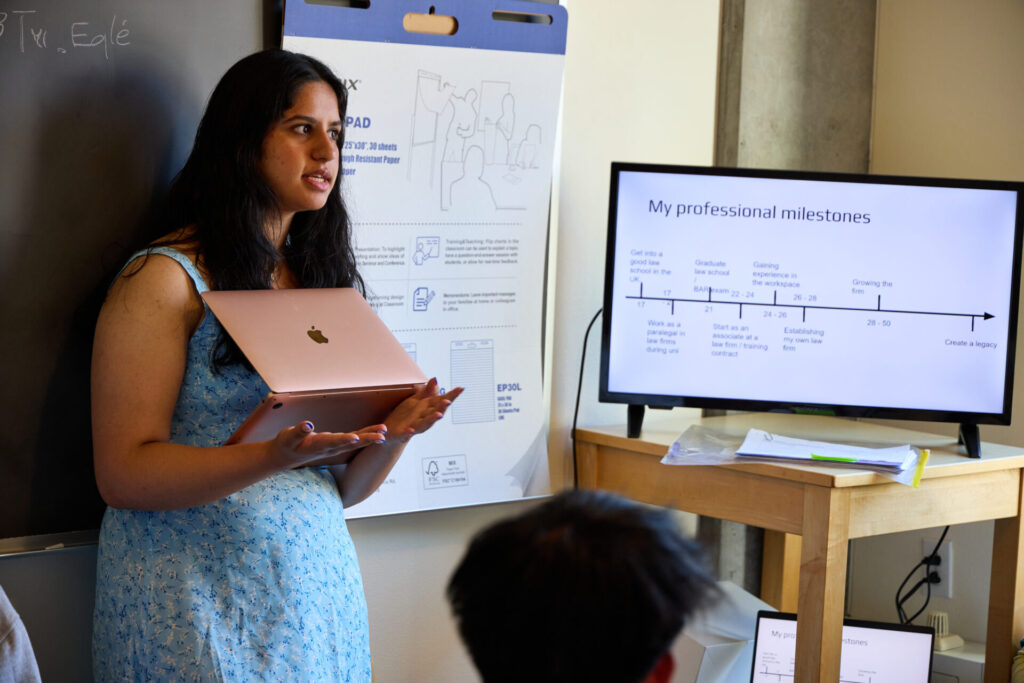Entering a writing contest is an exciting and rewarding way for students to develop their creative abilities, gain recognition, and build confidence in their storytelling skills. This comprehensive, step-by-step guide is designed specifically for students who want to learn how to confidently enter writing contests, focusing on short story competitions while showcasing useful resources and opportunities through Immerse Education.
What Is a Short Story Contest and Why Should Students Participate?
What Defines a Short Story Contest
A short story contest invites writers to submit original, limited-length fiction, usually ranging from 1,000 to 5,000 words, depending on contest specifics. These contests typically have themes, prompts, or genre requirements encouraging writers to hone their creativity within certain parameters. For example, a contest might ask you to write a story centred on a prompt or idea, offering a common creative thread for all entries.
Contests prioritise unpublished and original work, emphasising fresh voices and authentic storytelling.
Why Enter a Writing Contest as a Student
Participating in a short story contest benefits students in many ways:
- Sharpening writing skills: Focusing on crafting a short story for contests helps develop plot, character development, language, and pacing.
- Building confidence: Submitting your work for judgment and possibly winning or being published builds self-belief and motivation.
- Gaining feedback: Some contests provide commentary or critiques, giving you valuable insights to improve your craft.
- Enhancing portfolios: Contest accolades strengthen academic applications and writing resumes.
- Accessing opportunities: Many contests lead to workshops, mentorship, or summer schools like the Creative Writing Summer School offered by Immerse Education.
Engaging in writing contests connects you with a vibrant creative community and encourages continual growth as a writer.
How to Find and Choose the Right Contest
Where to Search for Contests
To find suitable contests as a student, start with trusted and curated platforms. Immerse Education’s 15 Creative Writing Competitions for High School Students page is a great resource showcasing current contests designed specifically for you. This ensures you access verified competitions with clear rules and fair judging.
Your school’s teachers, local libraries, or writing clubs can also alert you about local writing competitions, boosting your chances to enter contests close to home that might offer different opportunities.
Checking Rules and Eligibility
Each contest comes with distinct requirements and rules. When you’ve identified a contest:
- Verify word count limits and ensure your story fits perfectly.
- Understand theme or prompt constraints to tailor your submission appropriately.
- Check eligibility factors such as age, student status, or geographic restrictions.
- Note if the contest requires anonymous submissions to avoid bias.
- Confirm formatting guidelines such as font size and spacing.
- Take note of submission deadlines and entry fees, if any.
Carefully following these rules means your story passes eligibility checks and is judged fairly.
Picking the Best Fit for Your Story
Match your story’s style, theme, and length to the contests you consider:
- If your story contains elements of fantasy, magical realism, or sci-fi, find contests welcoming those genres.
- Stories addressing identity or social themes work well in themed contests focusing on culture or change.
- Choose contests with word count limits that align with your story’s length to avoid last-minute cuts.
Immerse Education’s well-curated contests page helps you identify the best matches for your strengths and narrative style, giving your story a better chance to shine.
Preparing to Enter the Writing Contest
Crafting a Strong Narrative
A winning short story grabs readers’ attention right from the start and holds it throughout. To achieve this, begin with a strong hook – an intriguing sentence or situation that immediately draws the reader in and builds curiosity. The opening shouldn’t just be flashy; it ought to establish the tone, hint at underlying conflict, or introduce a character in such a way that the reader wants to keep going. Avoid slow or overly detailed openings that risk losing interest early on.
When it comes to characters, aim to create well-rounded individuals with clear motives or conflicts that readers can understand or relate to. Given the limited word count typical in short story contests, you won’t have room for lengthy backstories. Instead, reveal character traits through their actions, dialogue, and decisions, which gives your story emotional depth without sacrificing pacing. The stakes your characters face should be tangible and compelling, driving the plot forward. Check out 50 ideas for compelling character motivations here.
The plot itself should be focused and cohesive, with tension rising toward a clear climax and a satisfying resolution. Avoid extraneous subplots that detract from the central narrative. Story endings don’t need to tie up every loose end neatly; sometimes leaving readers with a thoughtful ambiguity can create a lasting impression. Your goal is to deliver an experience that resonates emotionally or intellectually, within the word count constraints.
Language and style are equally important. Use vivid imagery and sensory details to bring scenes to life, and craft dialogue that feels natural yet purposeful. Varying sentence length can help maintain rhythm and prevent monotony, keeping readers engaged. Whenever possible, show rather than tell, letting actions and descriptions imply meaning.
If you find yourself stuck or needing inspiration to enter a writing contest, try exploring the writing prompts for high school students page on Immerse Education. These prompts can jumpstart creativity and provide fresh angles to approach your story. Regular practice with prompts can also sharpen your ability to generate compelling ideas. Additionally, perusing the Creative Writing Examples section to study different styles and techniques helps you understand what makes a story effective in contest contexts. Remember, writing a short story for contests is as much about creative expression as it is about precision and focus.
Editing and Polishing Tips
A thoroughly edited story stands out and demonstrates professionalism, which can significantly influence judges’ impressions. Before submission, carefully proofread your story for grammar, spelling, and punctuation errors, since even minor mistakes can distract readers or harm credibility. Confirm that your story adheres perfectly to the contest’s word count limits and formatting instructions. Judges might disqualify entries that don’t comply, so respect their guidelines closely.
Reading your story aloud is a wonderful way to catch awkward phrasing, rhythm issues, and unnatural dialogue. Hearing your words can reveal flaws that silent reading misses. Seeking objective feedback by sharing your draft with peers, teachers, or writing mentors is equally valuable – fresh eyes can spot unclear portions, pacing problems, or inconsistencies that you may overlook. Embrace constructive criticism as an opportunity to improve. If the contest requires anonymity, be diligent in removing your name and any identifying details from the document metadata, title pages, headers, or footers. This protects impartiality during judging.
Using tools like grammar checkers can help catch surface errors, but never rely solely on technology. Create a checklist covering all contest requirements and personal editing goals, and review it before the final submission.
Polishing your story to a high standard before you enter a writing contest shows respect for the judges’ time and increases the likelihood that your work will be given thoughtful consideration, boosting your chances in a short story contest.
Join the Immerse Education 2025 Essay Competition
Follow the instructions to write and submit your best essay for a chance to be awarded a 100% scholarship.

After You Submit
What to Expect from the Judging Process
After you have successfully entered a writing contest with your story, it’s important to understand what happens next. Most contests employ anonymous judging panels composed of literary experts or experienced writers. This anonymity ensures a fair assessment focused solely on the quality of the work, without bias toward the author’s identity.
Judges typically evaluate entries based on originality, creativity, narrative structure, character development, language use, and fidelity to the contest’s theme or prompt. Many contests have multiple rounds: an initial screening to weed out submissions that don’t meet criteria, followed by a round of detailed reading to select finalists, and finally the determination of winners. The timeline from submission deadline to results can range from several weeks to a few months, depending on the contest size and complexity.
Occasionally, contests offer critiques or comments from judges, which can be immensely helpful for future writing. If you don’t hear back immediately or do not win, remember that being selected as a finalist is already a notable achievement – it means your story stood out among many.
During the waiting period, consider continuing to strengthen your skills and creativity by attending the Creative Writing Summer School offered by Immerse Education or similar programs. These provide mentorship, feedback, and opportunities to write more stories under expert guidance, which is invaluable for readers who want to keep improving and preparing for upcoming contests.
Stay active in your writing practice; the experience gained by submission and waiting cultivates patience and resilience essential for any creative journey.
Learning and Growing from the Experience
Whether or not your story places as a winner, every contest experience offers invaluable growth opportunities as a writer. Start by carefully reviewing any judges’ feedback you receive. Even brief comments can shed light on what resonated with readers and where your story may have fallen short. Use this feedback constructively to intensify your storytelling strengths and address weaknesses in future works.
Reflection is equally important: consider your creative choices – plot, character, setting, tone – and their effectiveness. What did you enjoy writing? What challenges did you face? This self-awareness improves your writing outlook and skills over time.
Exploring additional contests broadens your exposure to different themes, styles, and expectations, helping you diversify your portfolio and adapt to varied creative challenges.
Sharing your stories in writing clubs, workshops, or online creative communities fosters connections with fellow writers, invites critique, and offers encouragement. This communal support is motivating and often inspires fresh ideas.
Most importantly, keep writing frequently to develop your unique voice and deepen your confidence. Writing is a continual journey, and persistence is key.
Participating in high school short story contests through platforms like Immerse Education is a meaningful way to nurture your creative talents and build confidence academically and personally. Each story submitted is a step forward on your path as a developing writer and storyteller.
Tips for Entering a Short Story Contest to Win
If you want to improve your chances of winning a short story contest, especially as a student, keep these key tips in mind:
- Submit Early: Judges often review entries as they come in. Sending your story early increases the chance it gets thorough attention before the flood of last-minute submissions.
- Follow the Rules Exactly: Carefully adhere to word count limits, formatting instructions, and theme requirements. Even small deviations can lead to disqualification.
- Engage Deeply with the Theme: If the contest has a prompt or theme, make sure your story explores it fully, not just superficially. A strong connection to the theme resonates well with judges.
- Create Memorable Characters: Develop characters with clear motivations or conflicts that drive the story forward and engage readers emotionally.
- Craft an Attention-Grabbing Beginning and a Satisfying Ending: The first few lines should hook the reader instantly, and the conclusion should provide a meaningful resolution or twist.
- Be Original and Fresh: Avoid clichés and predictable storylines. Unique perspectives or surprising ideas help your story stand out.
- Edit Thoroughly: Proofread for grammar, spelling, and flow. Reading aloud or getting feedback from peers or teachers can catch awkward phrasing and polish your work.
- Write What You’re Passionate About: Genuine enthusiasm for your story often translates into more compelling writing that judges can sense.
Conclusion
Entering a short story writing contest is much more than just submitting a piece of writing – it’s a valuable learning experience that helps you grow as a student and a writer. Each contest you enter challenges you to push your creative boundaries, refine your craft, and develop resilience through the feedback and judging process. Whether you win or not, the journey itself strengthens your storytelling abilities, builds your confidence, and connects you with a community of like-minded writers.
Remember that every story you write and every contest you enter adds to your growth, skillset, and opportunities for future success. Embrace each challenge as a stepping stone toward becoming a more accomplished writer. Your passion and persistence will not only open doors to prizes and recognition but also deepen your love for storytelling – one of the most powerful and rewarding forms of expression.
So take the next step: write boldly, submit confidently, and keep discovering your voice through the exciting world of short story contests.


























